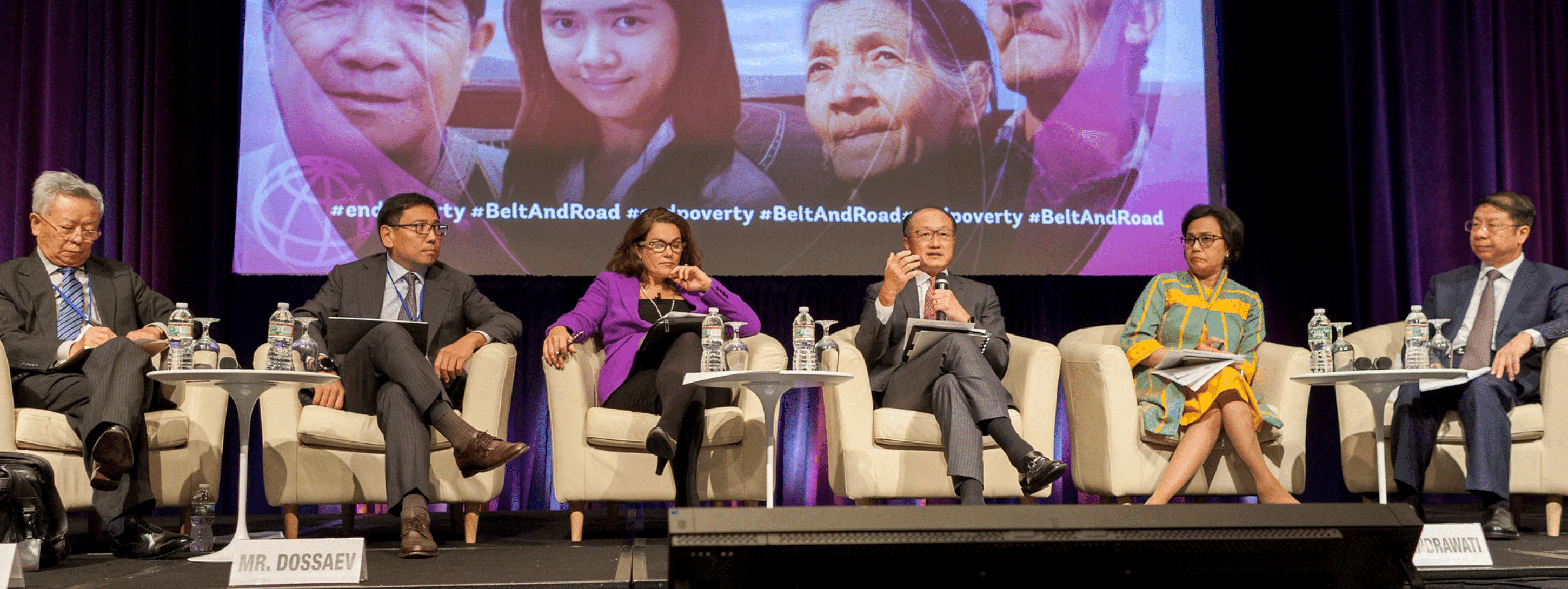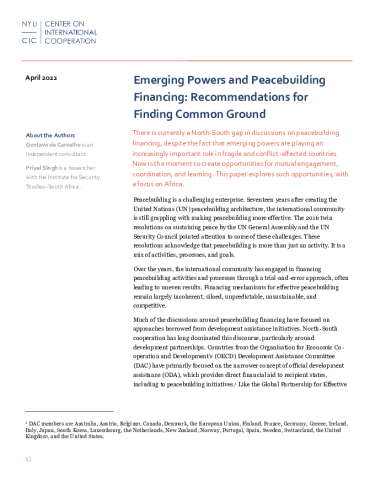There is currently a North-South gap in discussions on peacebuilding financing, despite the fact that emerging powers are playing an increasingly important role in fragile and conflict-affected countries. Now is the moment to create opportunities for mutual engagement, coordination, and learning.

Over the years, the international community has engaged in financing peacebuilding activities and processes through a trial-and-error approach, often leading to uneven results. Financing mechanisms for effective peacebuilding remain largely incoherent, siloed, unpredictable, unsustainable, and competitive. Much of the discussions around peacebuilding financing have focused on approaches borrowed from development assistance initiatives. North-South cooperation has long dominated this discourse, particularly around development partnerships. Countries from the Organisation for Economic Co-operation and Development’s (OECD) Development Assistance Committee (DAC) have primarily focused on the narrower concept of official development assistance (ODA), which provides direct financial aid to recipient states, including to peacebuilding initiatives. Like the Global Partnership for Effective Development Cooperation (Busan), most global cooperation frameworks also focus on North-South arrangements.
A fundamental gap in ongoing discussions relates to how non-DAC countries finance their peacebuilding engagements. These countries, often represented by emerging powers, have nurtured engagements with fragile and conflict-affected states for decades. The experiences of these emerging powers have led to the development of various mechanisms to support countries emerging from conflict.
This policy brief by Gustavo de Carvalho and Priyal Singh analyzes the distinctive characteristics of emerging powers in relation to peacebuilding financing processes and provides recommendations on how to better contribute to global discussions on adequate peacebuilding financing, focusing on Africa.
Read the full policy brief: Emerging Powers and Peacebuilding Financing: Recommendations for Finding Common Ground


